January 2020 Blues Vol 36 No 1
It is timely that the
It is timely that the January 2020 edition of The Blues Police Magazine has chosen to honor the service, and sacrifice of Harris County, Texas Deputy Sandeep Singh Dhaliwal (EOW 9-27-19). Although I never had the privilege to meet Deputy Dhaliwal, I remember the video that circulated on social media of his gentle interactions with a young boy who was fascinated with his handcuffs. Deputy Dhaliwal was not only a hero, he was also an agent of positive social change as the first Sikh deputy hired by the HCSO. Deputy Dhaliwal represented the importance of embracing multiple cultures and faiths to enrich community and police relations. His tragic death allowed me to also reflect back on other line of duty losses this year and the essential need to mourn and remember. I closed my eyes and waited for the sound of the gun salute. I instinctively knew this would be followed by the final radio call, taps, folding of the flag, and the playing of the bagpipes. As a crisis and trauma counselor, consultant, and instructor with first responders for the last 20 years, I have had the honor and sadness to attend numerous memorial services for fallen law enforcement officers. With each one of these ritualistic ceremonies, I am always struck by their powerful impact for those who experience them. Ritual can be defined as an act or series of acts regularly repeated in a precise manner and have a special purpose. I have witnessed countless officers let down their guard long enough to shed a tear. I understand these demonstrations of grief and respect the need to be given a safe time and place to feel this pain and loss. It strangely allows us to attend to our emotional wounds before moving forward. It is also through this process that we give meaning to our own lives through the lens of these tragic events. As a part of this process, survivors (whether colleagues or family) of law enforcement officers killed in the line of duty often must engage in the sharing of their story as they work toward healing and implications for their own purpose in the world. As they recount the details often time and time again, the meaning of their loss evolves and often gives them direction to then positively impact the lives of others. Although difficult to hear, we have the ability to learn valuable life lessons from their grief, share in their journey, and can help them embrace the positive influence of the memories. It thus becomes a ritual. These losses often bond us in a way nothing else can. But grief and loss can be exhausting and reminds us of the need for self-care and an examination of our priorities. It can impact not only us as individuals, but also our relationships with others. I have counseled countless law enforcement families over the years and offer you the following, invest positive emotional and physical energy in your marriage and/or personal relationships much earlier than waiting until divorce has been discussed and NOW you want to work on it. I get it, police work is reactionary and addressing these issues early is somewhat counterintuitive. However, it is often very difficult to rebuild once the “house” is burnt to the ground. The negativity of this job/ career will creep into your life and steal the positive aspects of your soul if you let it. Practice gratitude and appreciation with your family and others EVERY SINGLE DAY, even on a small scale. Make a choice on your priorities in your life. Your investment in your relationships and/or role as a parent is priceless. You need them both during your career and after retirement. They also deserve to see the good in you and you deserve their love and support. Simply put, don’t be a jerk when you get home. Your family is not the dirtbag at the domestic you just left. Take the time to mentally shift from police mode to spouse, partner, and/or parent. Discuss with your family the need for a little “downtime” when you get home so you can bring them the best of you. Exercise regularly and eat well. Lastly, please make an appointment to chat with a professional before things are potentially beyond repair. Prevention and early intervention are key. Make these your new rituals. I promise you will see a positive difference. Dr. Tina Jaeckle specializes in counseling, consulting, and training in crisis, trauma, and mental health with law enforcement throughout the nation. Our Suicide Rate is Reaching Alarming Height; Please Reach Out! There is Help for You ! By now you have heard that we lost one of our own to suicide just a few weeks ago. I knew Tommy Phillips; he was a great man and he always greeted you with a smile on his face. His contributions to the department were numerous. Whether it was truly connecting with the community he served or helping young fresh rookies develop into amazing police officers, he represented the best of us. His presence around the Houston Police Department will be sorely missed by everyone who knew him. There have been 180 law enforcement suicides nationwide this year. For the entirety of 2016 there were only 143. It is very likely that we will have more than 200 law enforcement suicides this year and almost certainly this number will outpace line of duty deaths for the fourth year in a row. Although I have written about this topic previously, I found it extremely important to once again address the silent killer known as: law enforcement suicide. For those that are reading this article and going through a rough time, please know that there is help available. We have our own standalone non-profit, the Houston Officers Peer Assistance (HOPA), which provides 24/7, confidential, peer support. The number is 832-200- 3499 and upon calling you will be connected to a highly trained HPD retiree who can assist you. If you don’t feel comfortable calling a local number you can contact the national peer support hotline, COPLINE. COPLINE is also 24/7, confidential, with highly trained retired police officers serving as counselors. That number is 1-800-COPLINE (1-800-267-5463). You can also visit a mental health professional of your choosing, the Department’s Psychological Services (832-394-1440) or the newly formed HPD peer support assistance unit. I can speak for the entire HPOU board when I say you can call anyone of us as well if you need to talk. There are no shortage of resources available to assist you, so please reach out if you need help. But it’s not just enough to have the resources available. We must work to ensure that officers feel comfortable coming forward without having the fear of losing the career for which they worked so hard. We are currently in discussions with the Department to change how we handle officers who wish to self-report mental health issues. We are confident that a new program will be rolled out shortly that will foster an environment of seeking treatment and getting back to full strength as opposed to worrying about any liability the Department may have. As a Department and a Union, we all have a moral obligation to help our officers and assist them in getting back to work and in a healthy state of mind. Working together with the Department, we can create this environment in hopes that no one is fearful to come forward when going through a crisis. We are all in this together, let’s be our brother and sister’s keeper and look out for one another. JOE GAMALDI, PRESIDENT HPOU As always, be safe out there and if you need anything I am only a phone call or text away, or you can also reach me at the following email: jgamaldi@hpou.org. ARTICLE REPRINTED WITH PER- MISSION FROM THE BADGE & GUN, A PUBLICATION OF THE HOUSTON POLICE OFFICERS’ UNION. 36 The BLUES POLICE MAGAZINE The BLUES POLICE MAGAZINE 37
- Page 1 and 2: The BLUES POLICE MAGAZINE 1
- Page 4: JANUARY, 2020 • VOL. 36 NO. 1 MIC
- Page 8: 0,000 ..what it won’t get you.
- Page 12: ENOUGH IS ENOUGH 5 Officers in 5 da
- Page 16: Disrespectful Chief & Low Life Judg
- Page 20: BACK TO THE FUTURE KARMA IS A BITCH
- Page 24: Atascosa Sheriff’s Office Scores
- Page 28: Oklahoma Lieutenant Indicted for St
- Page 32: BACK TO THE FUTURE 1985: AWARD GOES
- Page 38: HARRIS COUNTY DEPUTY SANDEEP DHALIW
- Page 42: HOUSTON POLICE SGT. CHRISTOPHER BRE
- Page 46: Supervisory Deputy US Marshal Norma
- Page 50: Deputy - Harris County SO Sandeep S
- Page 54: Statewide Vacancies Peace Officer D
- Page 58: OFFICERS DOWN Another Officer Tragi
- Page 62: 62 The BLUES POLICE MAGAZINE
Inappropriate
Loading...
Mail this publication
Loading...
Embed
Loading...




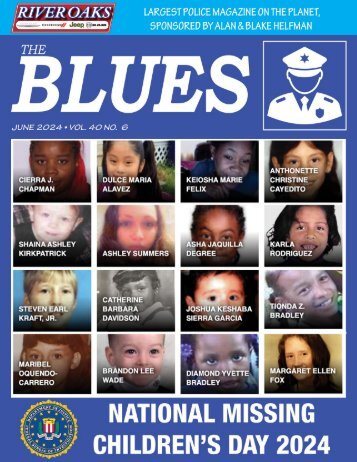
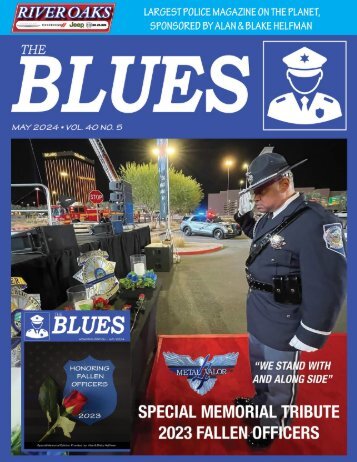
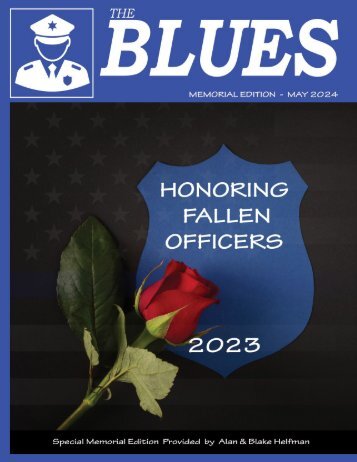
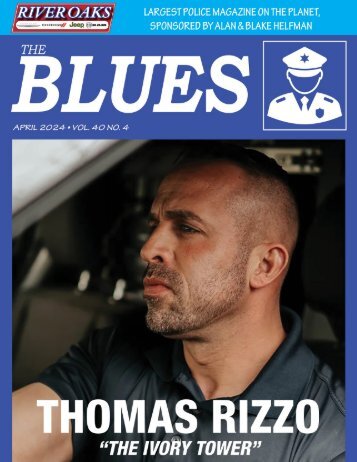


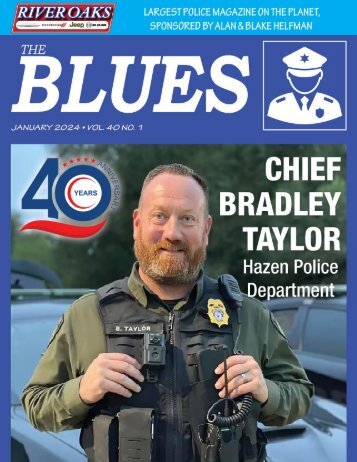
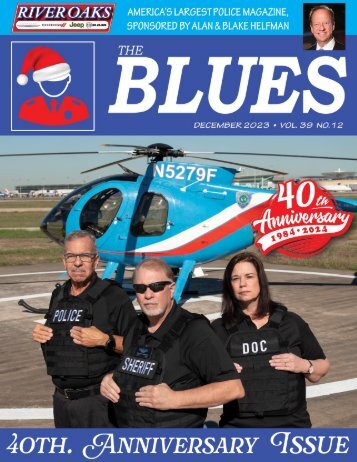
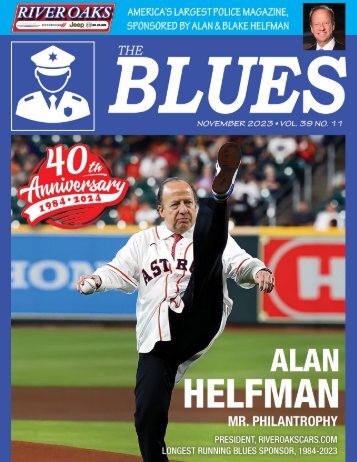
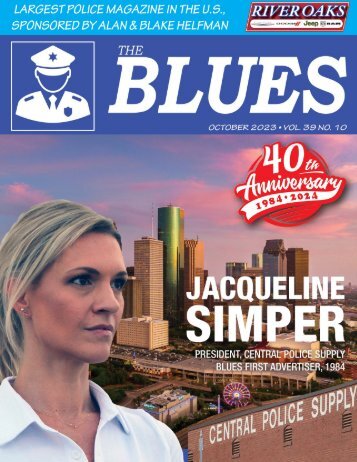
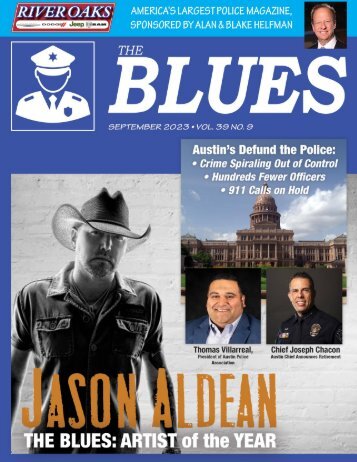
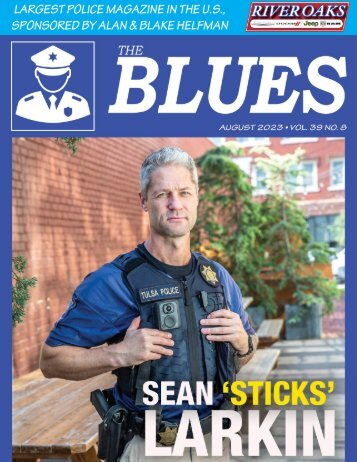


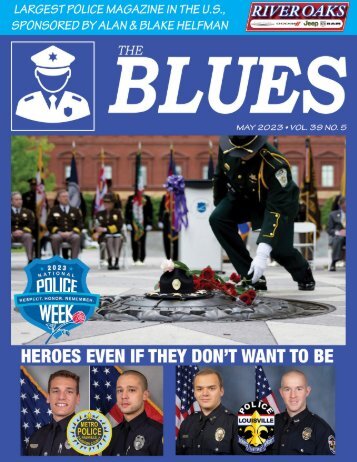
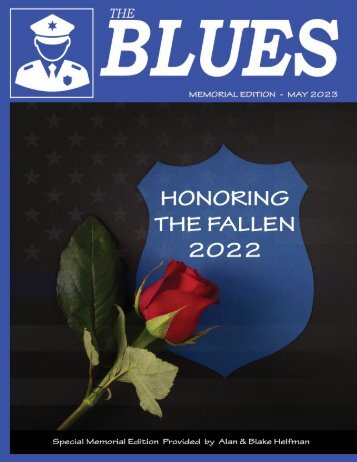
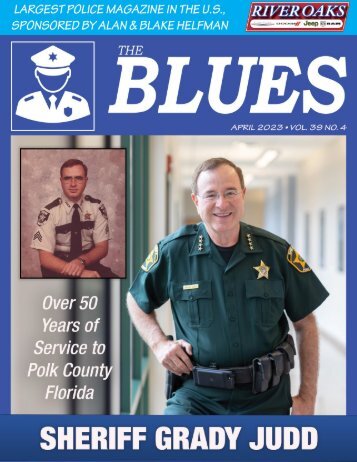
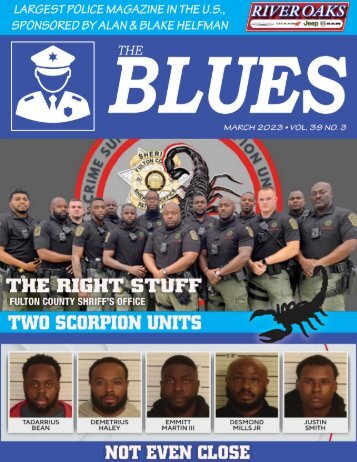

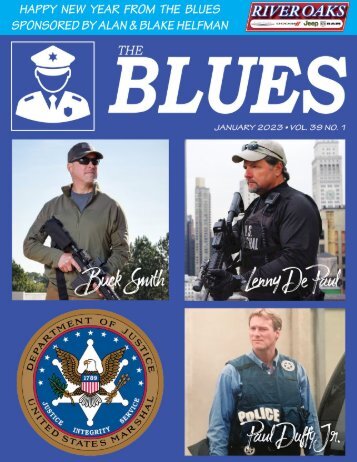



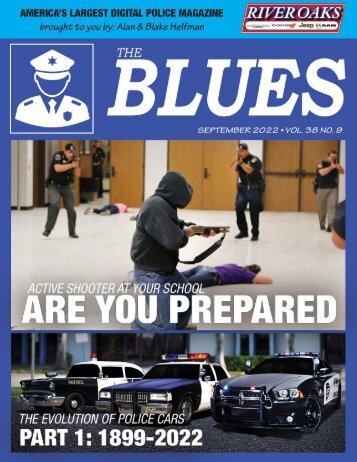
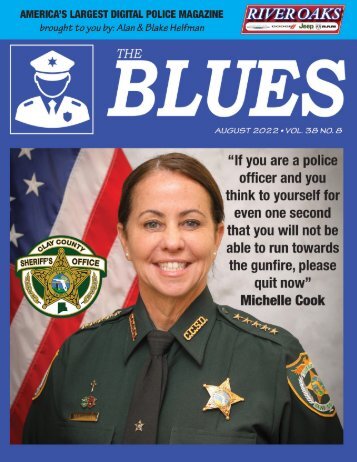

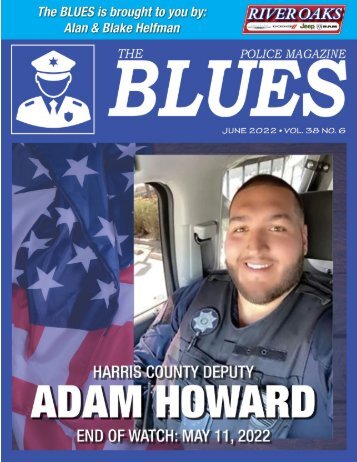
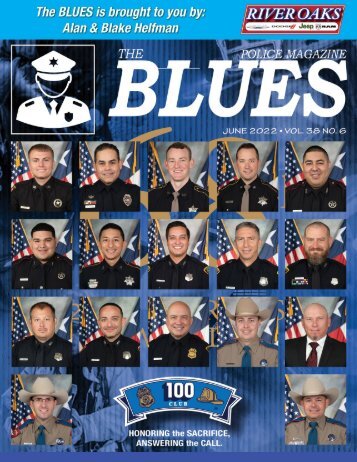
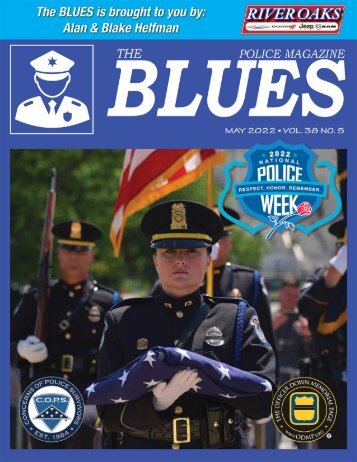
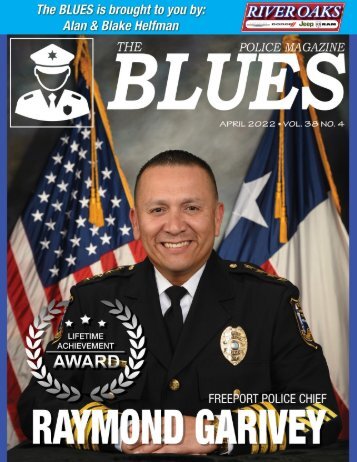

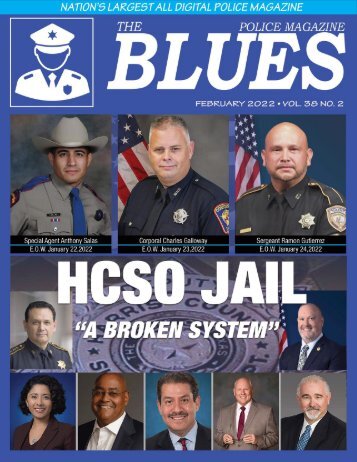
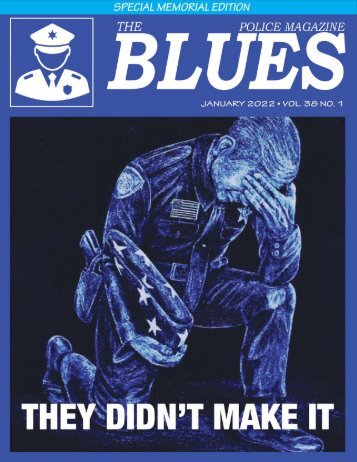
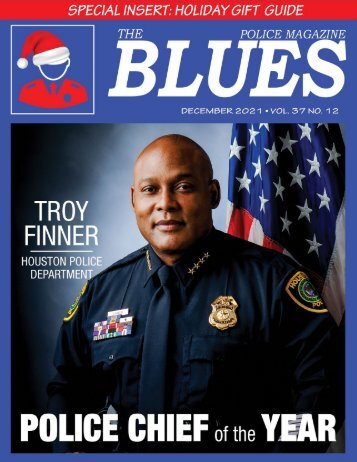

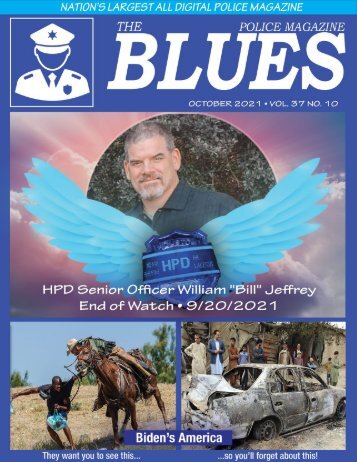
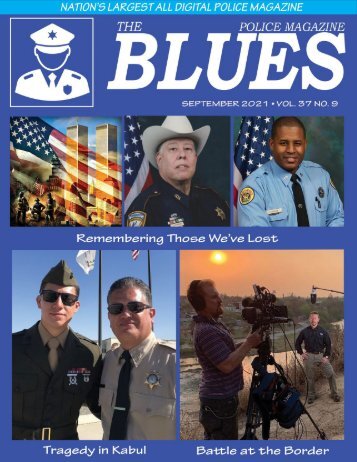

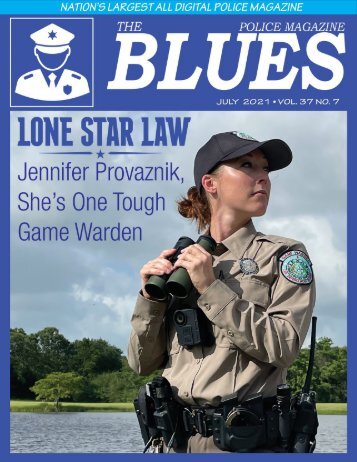



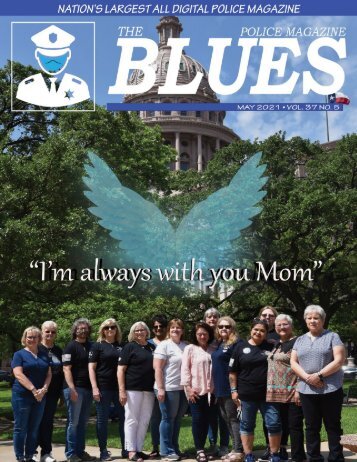
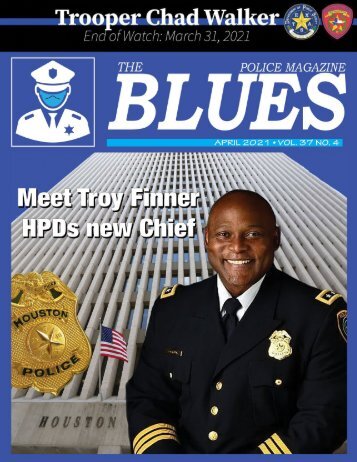
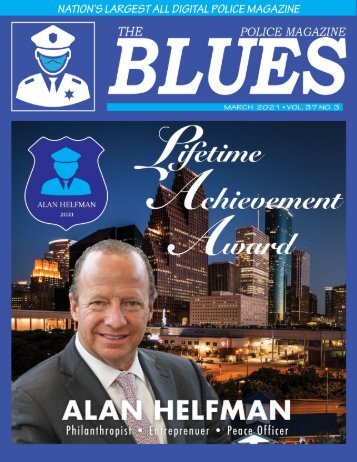
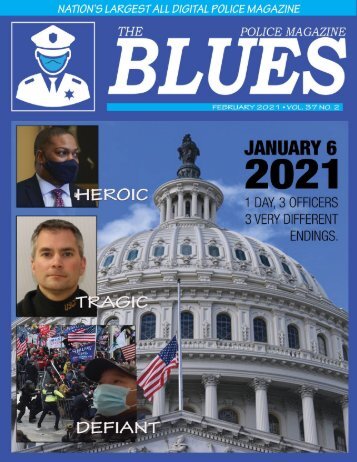


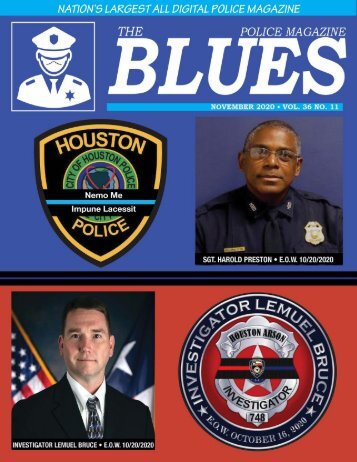


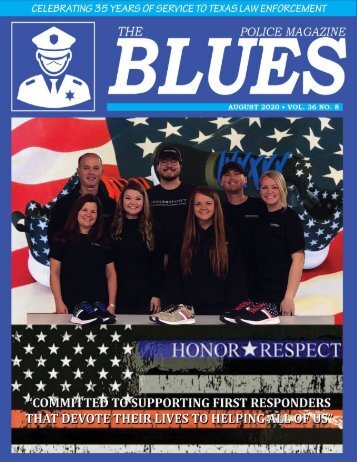

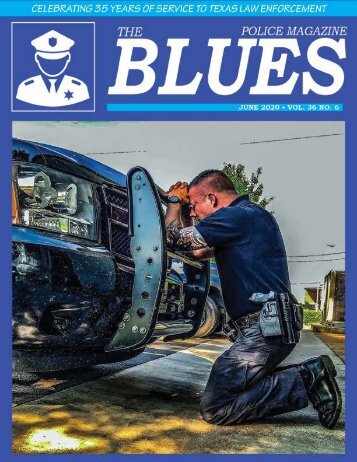
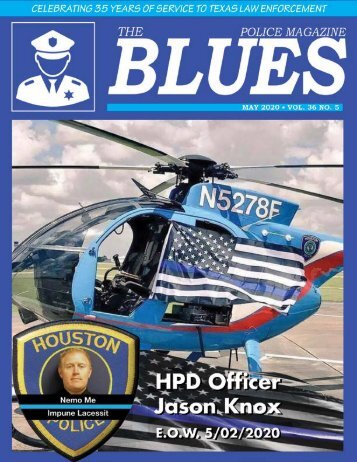
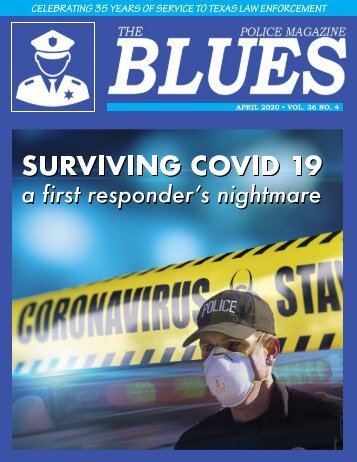
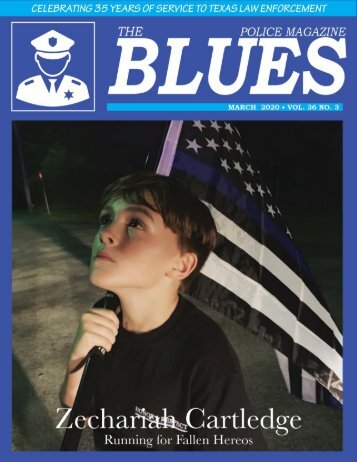
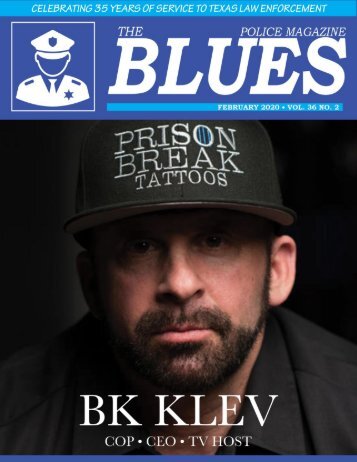
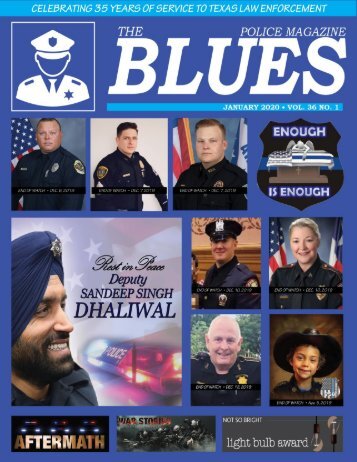
Follow Us
Facebook